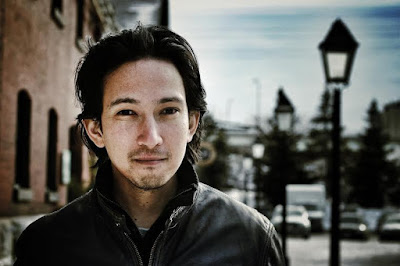 |
| Photo via my Flickr |
Canadian company Tapestry Opera are known for being inventive. Their creative takes on presentation, production, and composition are, in many senses, helping to redefine what opera’s role is (and perhaps should be) moving into the 21st century. Next month they’ll be presenting the North American premiere of The Devil Inside, an adaptation of a scary tale by Robert Louis Stevenson that has been given a contemporary update. A co-commission and co-production by Scottish Opera & Music Theatre Wales, the show was lauded upon its premiere last month in Glasgow and is already creating something of a stir in Toronto’s music scene.
No details from the evening have been released yet, but audiences are being promised snatches of works from some of Tapestry’s most popular shows, including 1992’s award-winning Nigredo Hotel, which features a libretto by acclaimed Canadian author Anne-Marie MacDonald. While we can’t expect any murderous wives or mid-aria heavy metal guitar solos, I’m also thinking: it’s a Tapestry show, so go with the flow. Anything could happen. That’s the great appeal of Tapestry’s approach, and, perhaps, of modern opera itself.
 |
| Photo by Michael Edwards |
Last year you performed in a recital that featured music written from both male and female perspectives; what do you get out of singing parts written for men?
WG: It always adds a layer of interest and intrigue when a person performs in drag, whether male or female. I’m hired to perform many male roles in opera, because of my voice and body type. It’s just what I do, and I’m totally used to it. (I also love it!) Whether in opera or recital, it’s very interesting to witness a character interpreted by a performer of the opposite gender. That artist can bring something to it, perhaps a more conscious approach, that a performer of the “correct” gender would not necessarily be able to do.
How difficult is it for you as a singer to go between various ‘sounds’ – from Mozart to modern work like that of Gordon Lightfoot?
WG: Not difficult at all. In fact, it is a joy for me, and often a welcome feeling for my voice to switch between different styles of singing, either within one performance or from contract to contract. There are basic principles of my vocal production that stay consistent no matter what the style is, like how I breathe, but for the rest of it, it’s like one part of my voice get a little break, while the other takes over.
Do you think it’s important for singers to embrace genres other than opera?
WG: I think it’s totally up to each performer, and where their interests and abilities can take them. It’s neither important, nor necessary, for all of us performers to be terribly diverse. To each their own. There are some people who can sing the bejeezus out of one particular style or role, better than anyone in the world, and then there are people like me: chameleons. As long as we have all the bases covered in this industry (and with the amount of singers on the market, that will never be an issue) I think artists can define themselves as they choose, and stray from the trodden path as much or as little as they like.
 |
| Photo by Amy Gottung |
What are your thoughts around diversity in opera?
MM: Diversity in opera is a loaded topic. The traditional repertoire is filled with works that stereotype, exoticize, villainize, parody, and/or simply exclude (perceived) “others”. Larger houses similarly face challenges in existing in the present, with diversity as one of many things that has not been dealt well with. (Name a big-house General Director, Composer, or Conductor that is either a woman or a minority.)
There is an old rule that if you can see yourself reflected in the thing you are looking at, then it is more attractive and welcoming. (Potential “things” can include administrative leadership, performers, stories, creators, audiences, design, style, and language.) Toronto is widely considered to be one of the most diverse cities in the world; why wouldn’t its contemporary opera embrace that? Tapestry has a history and practice of representing gender and race diversity at all levels. Inclusion is a great opportunity to take advantage of a wealth of talent and perspective that reflects and informs who we are today.
MM: For the same reason that sex is important to humankind. Without contemporary opera
collaborations and the subsequent conception and birth of works, the art form is doomed. A new generation of art builds a new generation of art goers…and when it is really good, there is nothing quite like it!
WG: It is relevant today and speaks directly to people’s experiences in life. Sure, the usual themes of opera drama will always be the same (love, revenge, and betrayal), but with modern opera, we hear stories that we know, and socio-cultural references that make sense to us, just as our classical operas did to the audiences of their time. I think this is very exciting and very important for the future of opera.
